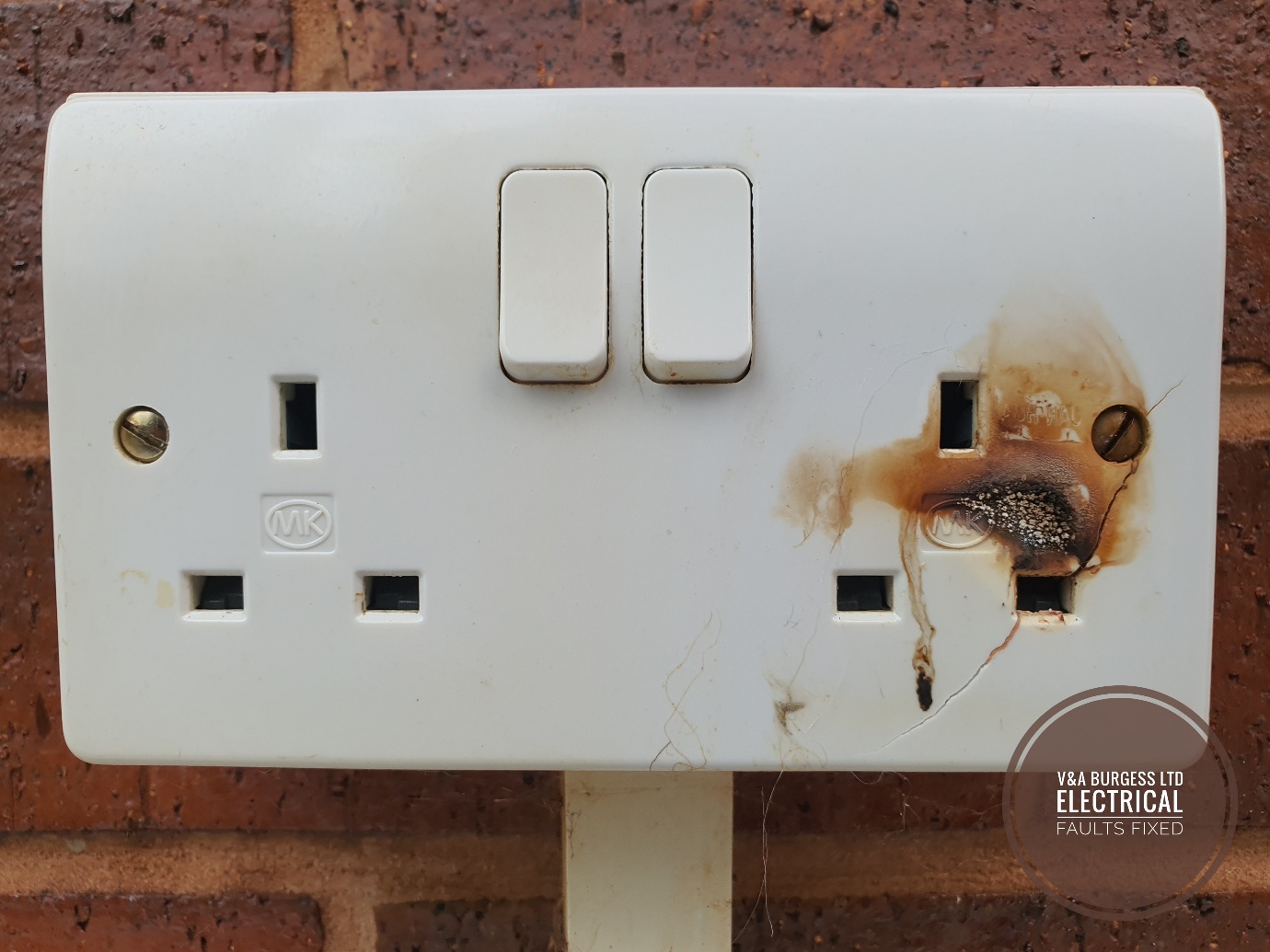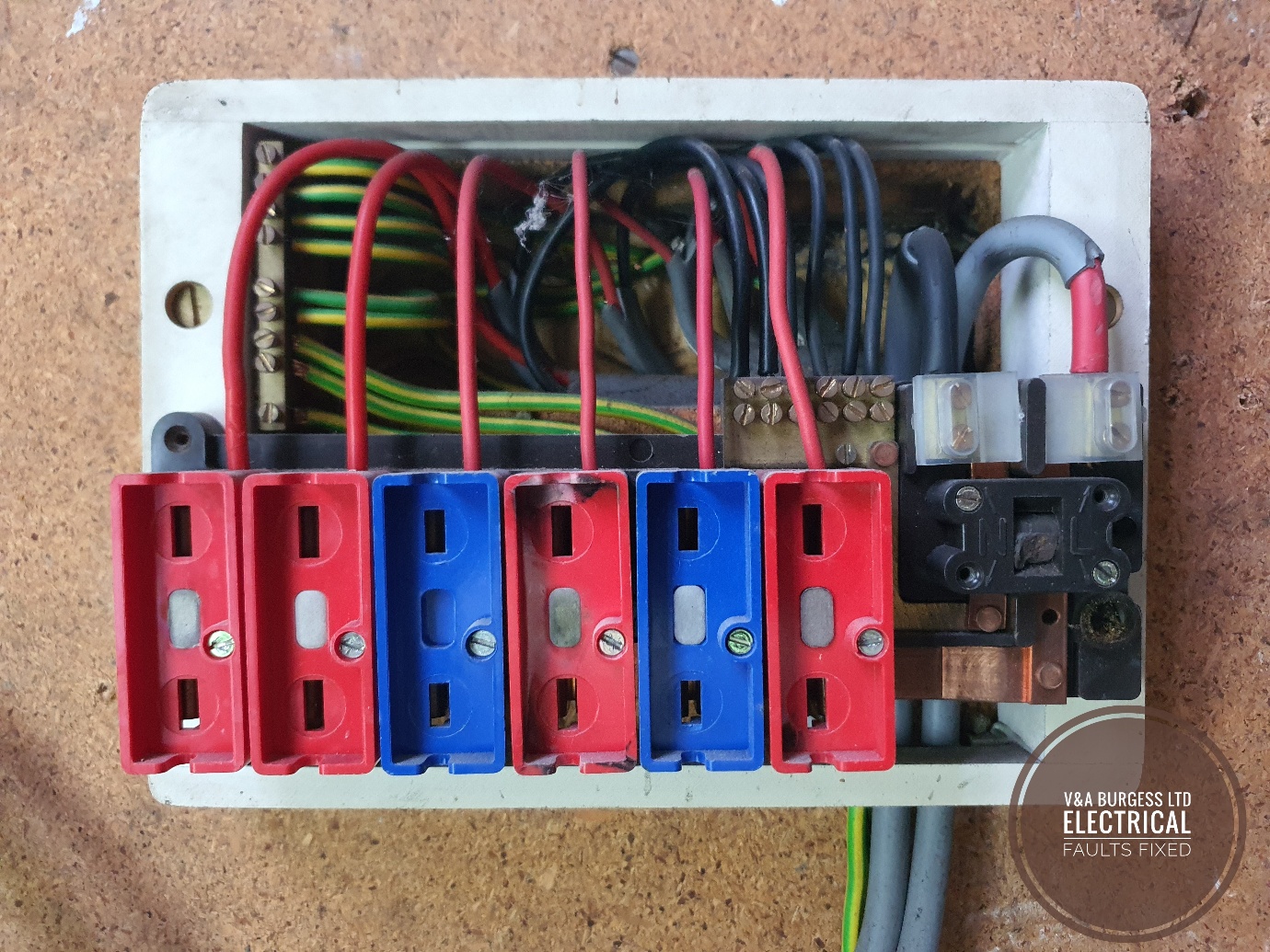Home Electrical Inspection Fail - House Sale Problems
When buying or selling a home, the home inspection process can feel like the final hurdle before the sale becomes official.
Table of Contents
- Why Electrical Inspections Matter in Home Sales
- Common Electrical Problems in Home Inspections
- How Electrical Issues Impact House Sales
- Electrical Failures vs. Other Common Inspection Problems
- The Role of Real Estate Agents in Inspection Findings
- What Home Buyers Should Do After a Failed Electrical Inspection
- How Home Sellers Can Prevent Inspection Failures
- Safety Hazards and Health Risks in Older Homes
- The Bottom Line: Electrical Inspections as a Valuable Tool
For many first-time home buyers and even seasoned home sellers, this stage can be stressful because inspection findings often reveal potential problems that need attention.
Among the most common issues, electrical inspection failures stand out as a serious concern that can quickly derail a real estate transaction. From faulty wiring to outdated electrical panels, electrical issues are not only safety hazards but can also be deal-breakers when potential buyers are deciding whether to move forward.
Learn what to expect from a UK home inspection
Back to top1) Why Electrical Inspections Matter in Home Sales
A home’s electrical system is one of the most important components evaluated during a home inspection. Inspectors are trained to look for electrical problems that could pose fire hazards, safety risks, or violate local building codes. Even homes that look in good shape on the surface may hide red flags like double-tapped circuit breakers, improper installation, or outdated wiring. These findings go straight into the home inspection report, where they can influence the purchase contract and negotiations.
For potential buyers, knowing whether a home has electrical defects provides a valuable tool to make an informed decision. For home sellers, ensuring the home’s electrical components meet codes (USA) and regulations (UK) before listing can prevent failed home inspection scenarios and keep the home sale moving smoothly.
Back to top2) Common Electrical Problems in Home Inspections
Electrical inspection failures can stem from both minor and major issues. Here are some common problems inspectors often uncover:
- Faulty wiring – A bigger problem in older homes where outdated systems weren’t designed to handle modern electrical loads.
- Outdated electrical panels – Panels / fuse boxes / consumer units that no longer meet code or are undersized for the home’s needs.
- Double-tapped circuit breakers – A serious issue that can lead to electrical fires.
- Missing smoke detectors or carbon monoxide detectors – Simple fixes that still result in safety concerns.
- Improper installation – DIY electrical work by a previous owner that doesn’t meet electrical code inspection standards.
- Overloaded circuits – A potential fire hazard and a sign of deeper electrical issues.
These electrical problems often trigger the dreaded “failed inspection” notice. While some may be an easy fix, others can require extensive repairs carried out by a professional electrician.

(Photo: Burnt Plug Socket)
Back to top3) How Electrical Issues Impact House Sales
When inspection findings uncover major defects like electrical hazards, the results of a home inspection can impact the entire real estate transaction. A home buyer may request a repair credit, a reduced price, or insist the home sellers correct the issues before closing. If the problems are considered major issues or safety hazards, they may even walk away from the deal altogether.
Here are a few ways a failed home inspection can complicate the sale:
- Negotiation leverage – Potential buyers often use the home inspection report to push for a reduced purchase price if costly repairs are needed.
- Repair demands – Home sellers may be asked to arrange for electrical work, such as replacing panels or rewiring faulty circuits, before the purchase contract is finalized.
- Inspection contingency – The home inspection contingency allows buyers to back out without losing earnest money if serious problems are discovered.
- Extended timelines – Significant issues like structural damage or foundation problems may delay closing, especially if a structural engineer or professional electrician needs to be consulted.
4) Electrical Failures vs. Other Common Inspection Problems
While electrical inspection failures are a leading cause of deal delays, they are not the only problems that derail sales. Some of the other major problems that show up on inspection reports include:
- Water damage and poor drainage problems in crawl space or basements.
- Leaky roof or missing shingles, which could lead to extensive damage if not repaired.
- Foundation repair needs or structural issues that threaten the home’s structural integrity.
- Plumbing issues, such as poor water pressure, outdated water heaters, or excessive moisture.
- HVAC issues, which may require major repairs or replacement.
- Lead-based paint in older homes, which poses health risks, including lung cancer.
Each of these potential safety issues or health hazards can carry an average cost that makes buyers second-guess moving forward.

(Photo: Outdated Fuse Box)
Back to top5) The Role of Real Estate Agents in Inspection Findings
A good real estate agent helps guide both home buyers and home sellers through the inspection findings. They know the proper steps to take when a failed home inspection occurs and can help negotiate repair credits, reduced prices, or home warranties to address potential problems. They also advise sellers on common issues that can be fixed before listing, ensuring fewer red flags for buyers.
Agents often work closely with professional electricians, plumbers, or structural engineers to evaluate major defects and determine whether the issues are serious problems or an easy fix.
Back to top6) What Home Buyers Should Do After a Failed Electrical Inspection
For the home buyer, electrical inspection failures can feel overwhelming, but taking the proper steps can prevent bigger problems later:
- Read the inspection report carefully – Look for terms like electrical problems, structural issues, or potential safety issues.
- Consult a professional electrician – Have them evaluate the home’s electrical components and give an estimate of the average cost for repairs.
- Consider repair credits – A reduced purchase price may be negotiated to cover expensive repairs.
- Don’t ignore safety risks – Fire hazard concerns, faulty wiring, and outdated electrical panels are serious issues that should never be overlooked.
- Use the inspection contingency – If major repairs or costly fixes are required, walking away may be the best option.
7) How Home Sellers Can Prevent Inspection Failures
Home sellers can avoid the pitfalls of a failed inspection by being proactive:
- Hire a professional electrician for a pre-sale electrical code inspection.
- Address easy fixes like missing smoke detectors or improper installation of electrical outlets.
- Repair major problems before listing, especially electrical issues, structural damage, or plumbing problems.
- Disclose known issues honestly to avoid surprises during the inspection process.
By taking these important steps, sellers improve the chances of keeping their home sale on track and maintaining the purchase contract.
Back to top8) Safety Hazards and Health Risks in Older Homes
Older homes often have additional red flags, such as lead-based paint, asbestos, or faulty wiring. These can pose both health hazards and safety concerns. For example:
- Lead paint and lead-based paint dust can create health risks for children and may even cause lung cancer over long exposure.
- Asbestos insulation is a health hazard requiring professional removal.
- Outdated electrical systems are more prone to fire hazards and often fail electrical code inspection.
Potential buyers of older homes should be especially cautious and ensure they consult both inspectors and industry experts before proceeding.
Back to top9) The Bottom Line: Electrical Inspections as a Valuable Tool
A failed home inspection is never good news, but electrical inspection failures are among the most serious issues a home can face during the home inspection process. Electrical problems pose safety hazards, potential safety issues, and often require extensive repairs by a professional electrician. Alongside structural problems, water damage, and health hazards like lead paint, electrical issues are one of the most common reasons for failed inspections.
Both buyers and sellers need to understand the risks, the average cost of repairs, and the proper steps to take when inspection findings reveal major defects. While extensive damage or costly repairs can derail a deal, a good real estate agent, professional electrician, and careful negotiation can often bring the transaction back on track.
Ultimately, a thorough electrical code inspection is a valuable tool in the real estate transaction. It ensures the home’s electrical system is in good shape, identifies potential problems before they become serious issues, and helps both home buyers and home sellers move forward with confidence.
Back to top

